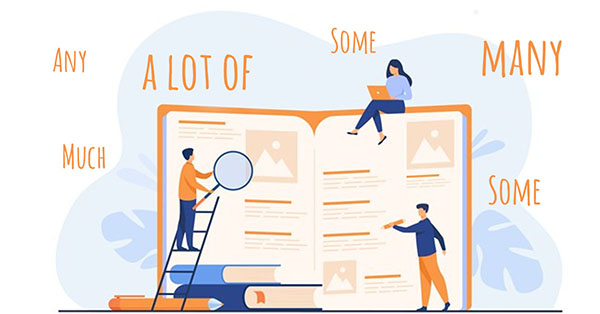What are Quantifiers?
Quantifiers are grammatical words that are usually placed before a noun to express the amount or quantity of an object. The most used quantifier words are some, many, a lot of, and a few. Quantifiers can be used with both countable and uncountable nouns.
Types of Quantifiers
Types of quantifiers can describe:
- Large quantities: a lot, much, many.
- Small quantities: a little, a bit, a few.
- Undefined quantities: some, any.
- Sufficient amount: enough, plenty.
Examples:
1- Using Much, Many, or a Lot Of:
- There are many stars in the sky.
- We have a lot of money, so we can buy anything.
- Many people prefer to take public transportation.
- Much of what makes up fruit is just water.
- He was playing soccer for a lot of time.
2- Using a Few, A Little, or A Bit (of)
- We need a few minutes before the game starts.
- Would you like a little sugar in your tea?
- They had a few cookies for breakfast.
- These trees need a little of watering.
3- Using Some or Any
- We have some clothes to give to poor people.
- She didn’t like any restaurant that we visited.
- Do they need any help?
- I went to some strange city in my dream.
- Will there be any people at your house tonight?
4- Using Enough or Plenty (of)
- There is plenty of food for everyone.
- Slow down we have plenty of time to get to the party.
- I think we have enough food for dinner.
- We don’t have enough fruits, let’s buy some.
Asking Questions using Quantifiers:
- How many times have you visited Paris?
- How many people did you invite to the wedding?
- How many balloons do we need?
- How much time we still have?
- How much water do you drink per day?
- How much gas do we need for the trip?
- How much do these oranges cost?
- How much does this dress cost?
- How much do those glasses cost?

